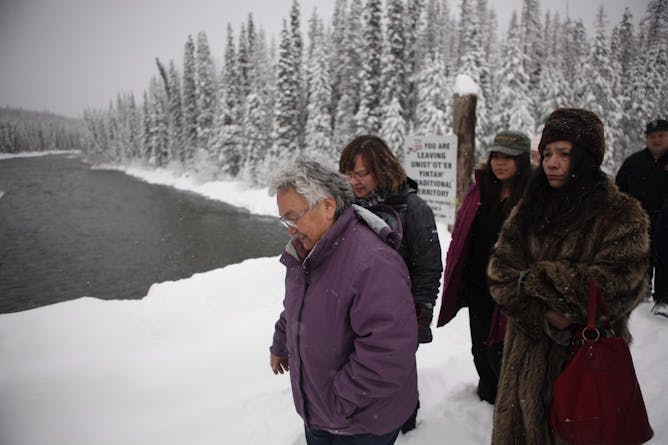|
Many of us have used Airbnb to book vacation accommodations or while looking for a short-term rental, but did you know that urban housing markets are being seriously affected by the U.S. company? The University of Toronto’s Mariana Valverde has a hard-hitting piece in today’s The Conversation Canada calling for Canadian cities like Toronto to crack down on Airbnb, arguing it pushes up rental prices and contributes to poverty.
The Unist’ot’en crisis playing out in northern British Columbia proves the time has come for Canada to support Indigenous land-based relationships and governance structures, according to Brian Budd of the University of Guelph and Liam Midzain-Gobin of McMaster University. They argue that Canada should engage with Indigenous people through the governance systems built prior to European settlement.
Ontario’s Doug Ford government is reportedly pondering a two-tiered, profit-driven health-care system. Three academics – Sarah Giles of the University of Ottawa, Danyaal Raza of the University of Toronto and Rupinder Brar of UBC – explain why that’s such a bad solution to the province’s health-care woes and those of the nation as a whole.
Finally, the gender gap in science extends even to the monetary value of the scientific prizes handed out around the world. Viviane Callier of the University of Toronto writes that women scientists are under-represented in science awards with large monetary value, but over-represented in the less lucrative service awards.
Four compelling stories as you kick off your week. We’ll be back in your inbox tomorrow.
|

Recent reports suggest Airbnb is having an impact on housing markets in cities popular with tourists.
(Shutterstock)
Mariana Valverde, University of Toronto
It's now clear that a single American company, Airbnb, has upended local housing markets, pushed rental prices skyward and could be contributing to poverty, especially in cities popular with tourists.
|

Supporters of the Unist'ot'en camp and Wet'suwet'en walk along a bridge over the Wedzin kwa River leading towards the main camp outside Houston, B.C., on Jan. 9, 2019.
THE CANADIAN PRESS/Chad Hipolito
Brian Budd, University of Guelph; Liam Midzain-Gobin, McMaster University
It's time to engage with Indigenous people through the governance systems built prior to European settlement.
|

In 2017, Saskatchewan’s auditor general showed that a private pay MRI program actually increased wait times for scans rather than the promised reduction. Here, an MRI machine is prepared at Toronto’s Sunnybrook Hospital on May 1, 2018.
THE CANADIAN PRESS/Chris Young
Sarah Giles, University of Ottawa; Danyaal Raza, University of Toronto; Rupinder Brar, University of British Columbia
A two-tier, for-profit health-care system will not end "hallway medicine" in Ontario or elsewhere; evidence from around the world shows that private payment increases wait times for the majority.
|

Women scientists are under-represented in science awards with large monetary value, but over-represented in service awards.
Shutterstock
Viviane Callier, University of Toronto
Women scientists are under-represented in science awards with large monetary value, but over-represented in service awards.
|
Environment + Energy
|
-
Matthew Savoca, Stanford University
Snorkeling off the California coast, a high school student found heaps of golf balls on the ocean floor. With a marine scientist, she showed that golf courses were producing tons of plastic pollution.
|
|
Arts
|
-
Steven Reid, University of Glasgow
The doomed Scottish monarch has divided opinion ever since the days when she was forced off the throne.
|
|
Politics
|
-
Peter Cole, Western Illinois University
Most people think pf Martin Luther King Jr. as a civil rights leader who led the nation in addressing the evils of systemic racism. What many don't know is that he also championed labor unionism.
-
Patrick Muthengi Maluki, University of Nairobi
Kenya needs to disseminate and implement intelligence so that it can effectively prevent and counter future terror attempts.
|
|